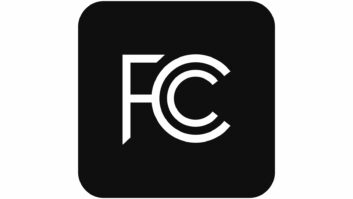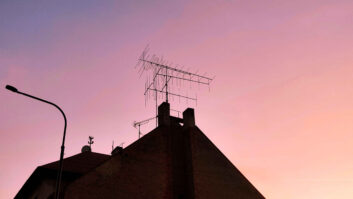A noncommercial educational station in Iowa has prevailed in its quest for a new transmitter site and increased power, even though the move will result in overlap issues.
According to an FCC summary, Plus Charities filed a modification application to increase power and specify a new transmitter site for an NCE FM station at Coggon, Iowa, after the Audio Division of the FCC’s Media Bureau issued a new construction permit. In its modification request, Plus Charities sought a limited waiver that would allow KMMK to receive prohibited overlap from two second-adjacent channel NCE stations: KXGM(FM) in nearby Hiawatha and KCCK(FM) in Cedar Rapids.
Plus Charities clarified that it would operate on a second-adjacent channel to KXGM and KCCK, and will receive but not cause overlap.
But the licensee of KCCK, Kirkwood Community College, filed an opposition to the request, saying that this type of waiver isn’t open to KMMK, the Plus Charities station. Such a waiver — allowing an NCE station to receive not cause overlap from second- or third- adjacent channel stations — is commonly known as a Raleigh Waiver and, according to the Kirkwood, is limited to existing NCE stations only, not available to new stations.
It argued that the rule is designed to prevent each NCE station from causing harmful interference to other NCE stations and to ensure interference-free service within each station’s own service contour. Kirkwood also said that the facilities proposed for KMMK would cause interference to some of its own listeners outside its protected signal contour.
Plus Charities challenged the assertion and argued that the bureau previously granted several Raleigh Waivers; it also denied that the move would cause interference issues.
In its response, the Media Bureau said commission rules can be waived when there is good cause. In this case, it said, a Raleigh Waiver is justified where an NCE station seeks to receive overlap from second- or third- adjacent channel station and the benefit of increased service heavily outweighs the potential for interference in a small area. “Granting waivers in these limited circumstances provides flexibility for NCE stations to modify their service areas while protecting existing service from interference,” wrote Peter H. Doyle, chief of the Audio Division.
Because the proposed modification will increase the station’s coverage area by 13% and offer service to nearly 175,000 (a 750% increase in population served), the benefit of increased NCE service “heavily outweighs the potential for interference in the two very small areas of received overlap.” The FCC therefore ruled in favor of Plus Charities, denied Kirkwood’s informal objection and granted the modification application.







